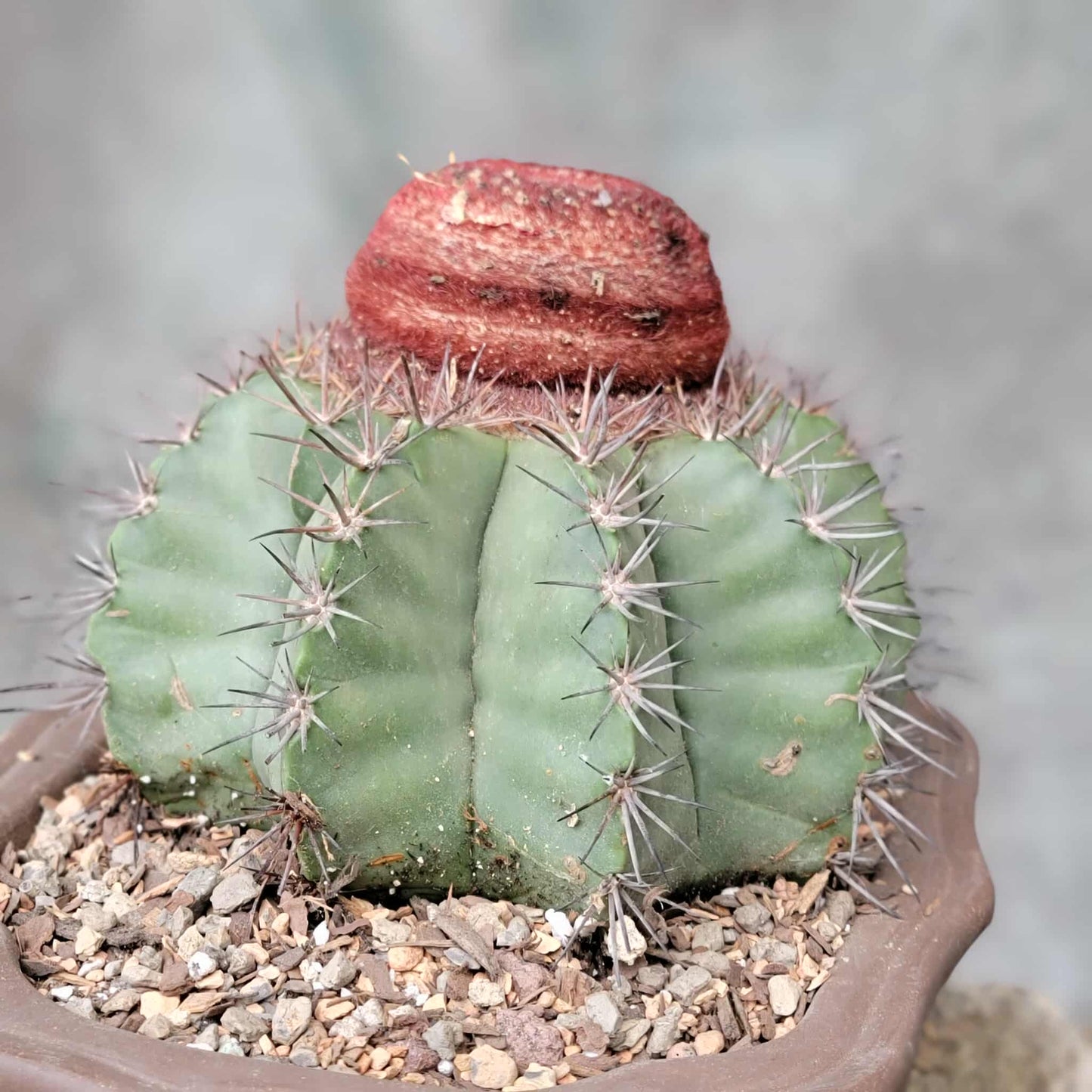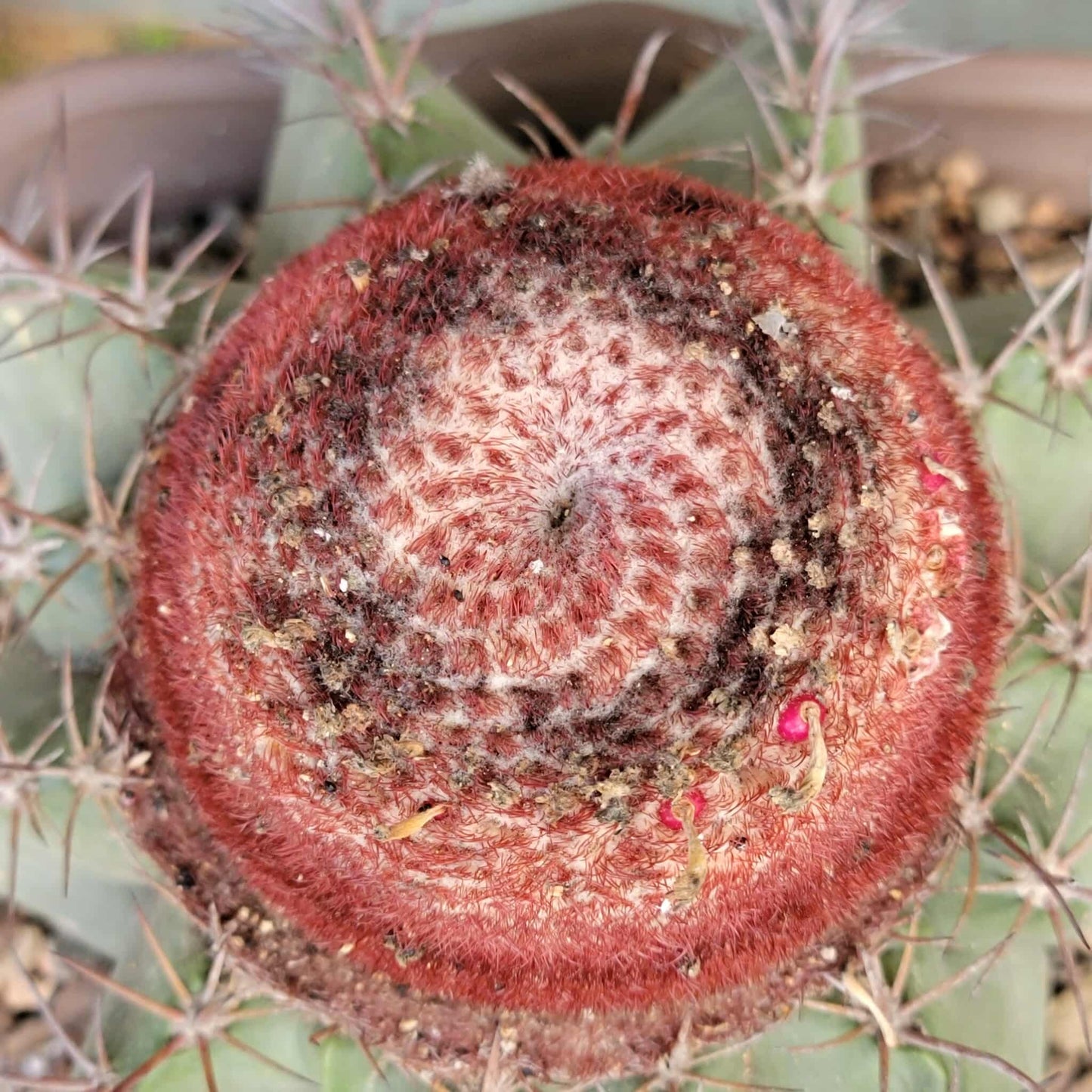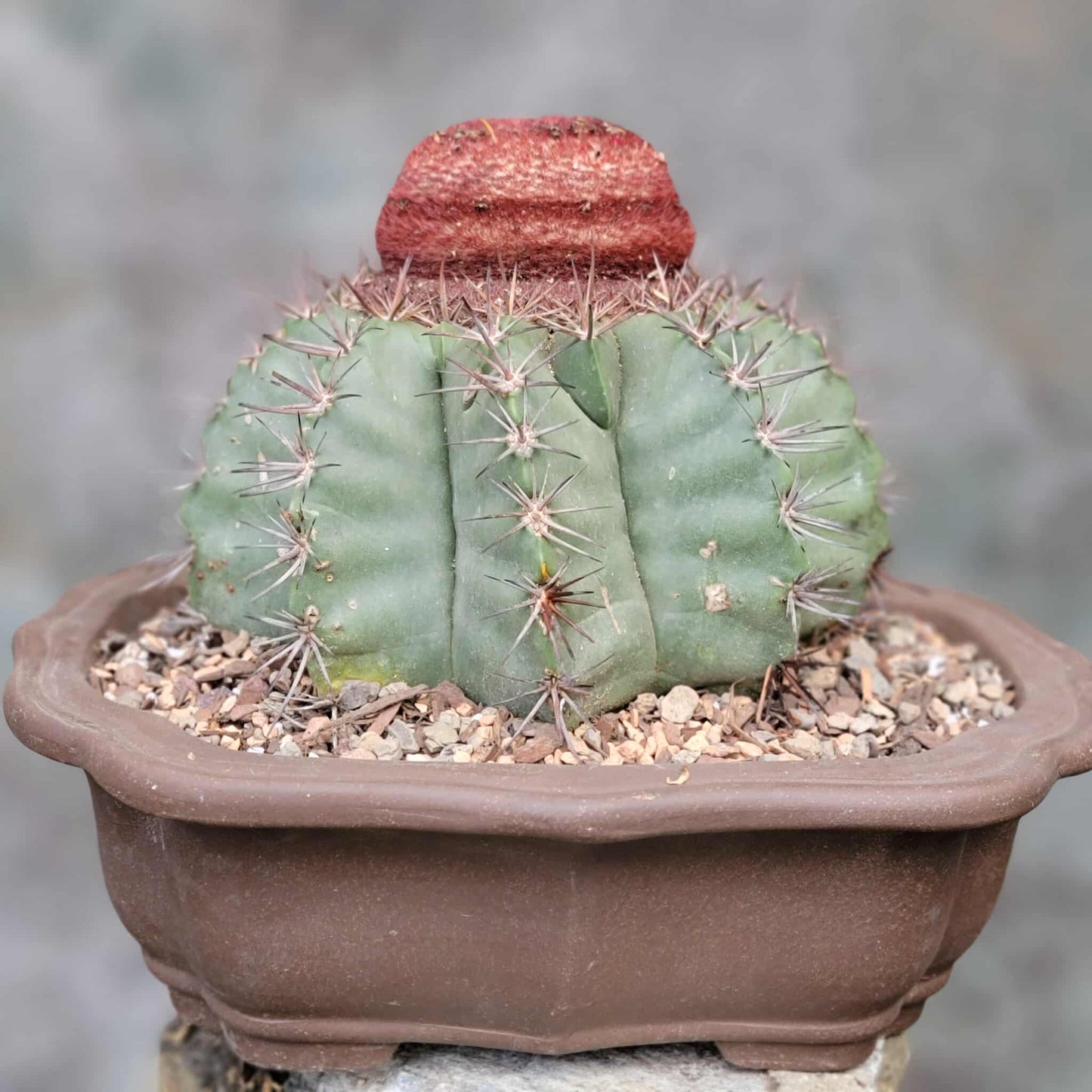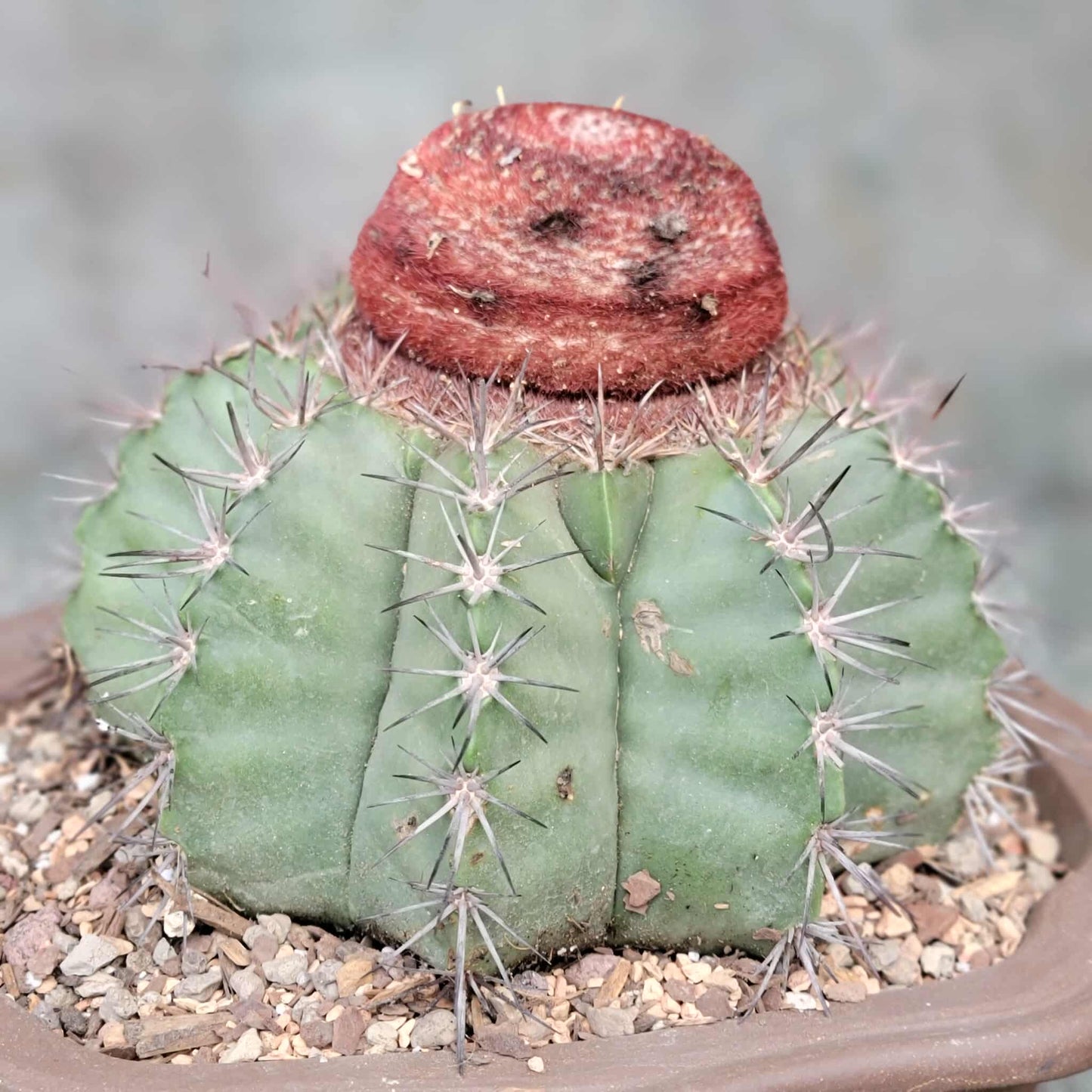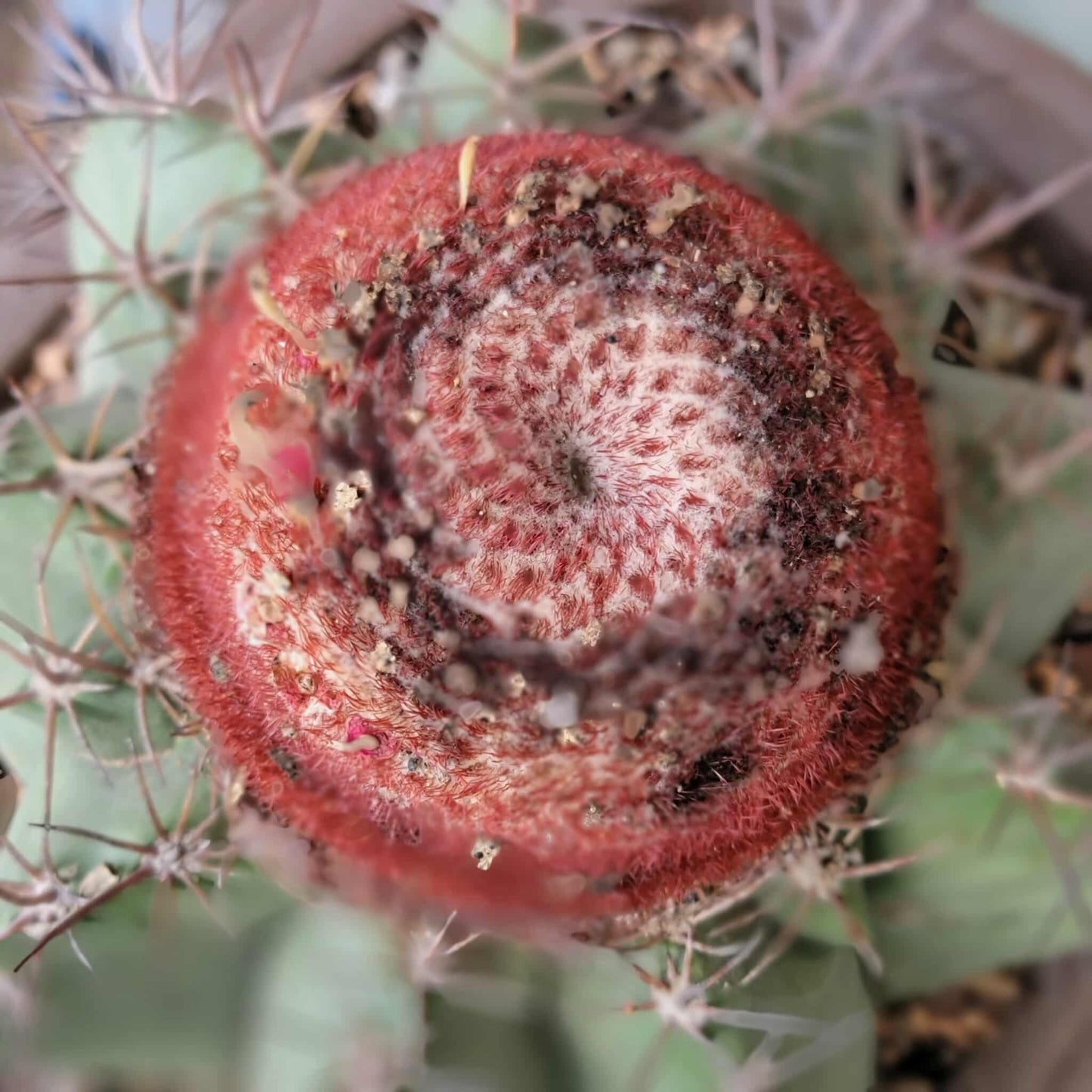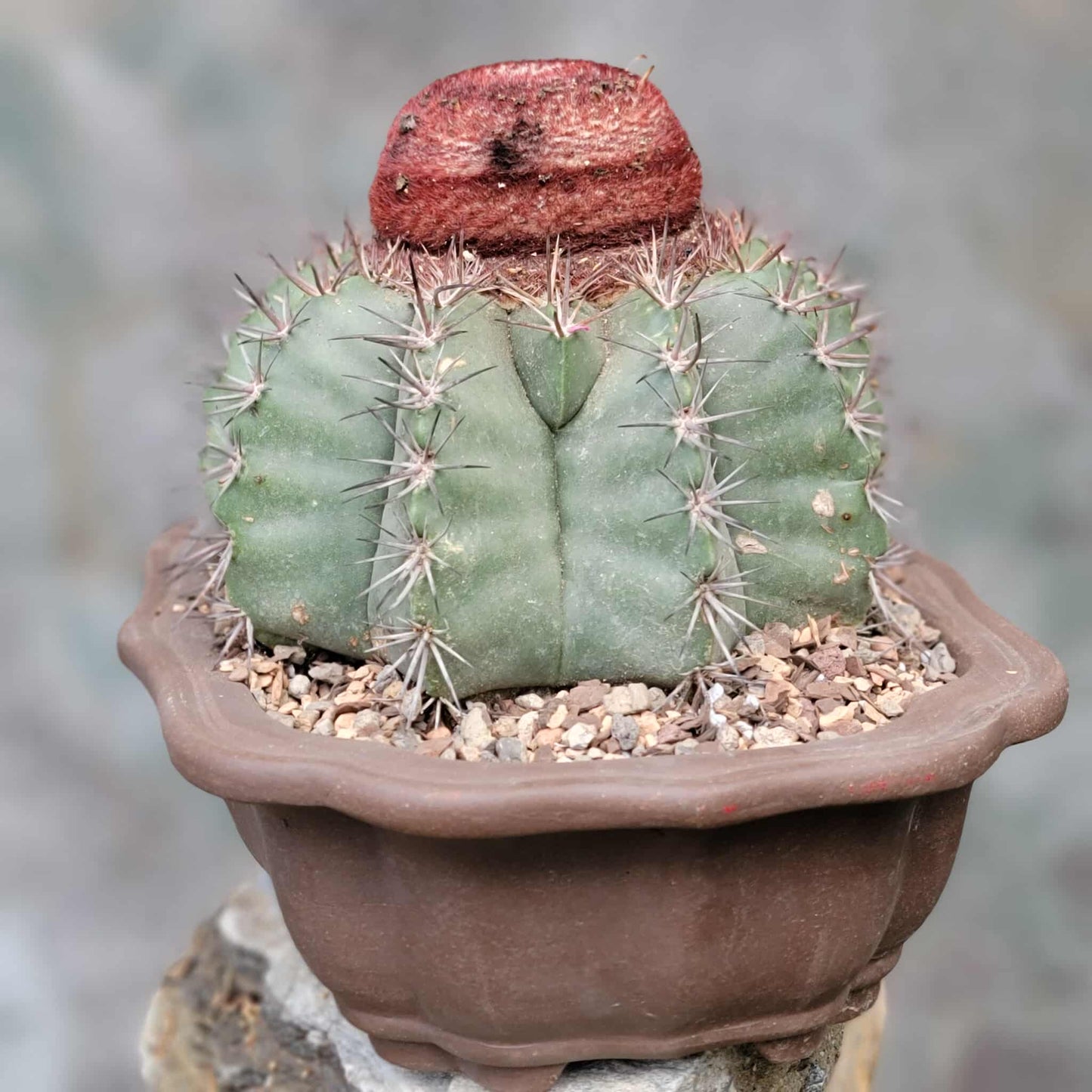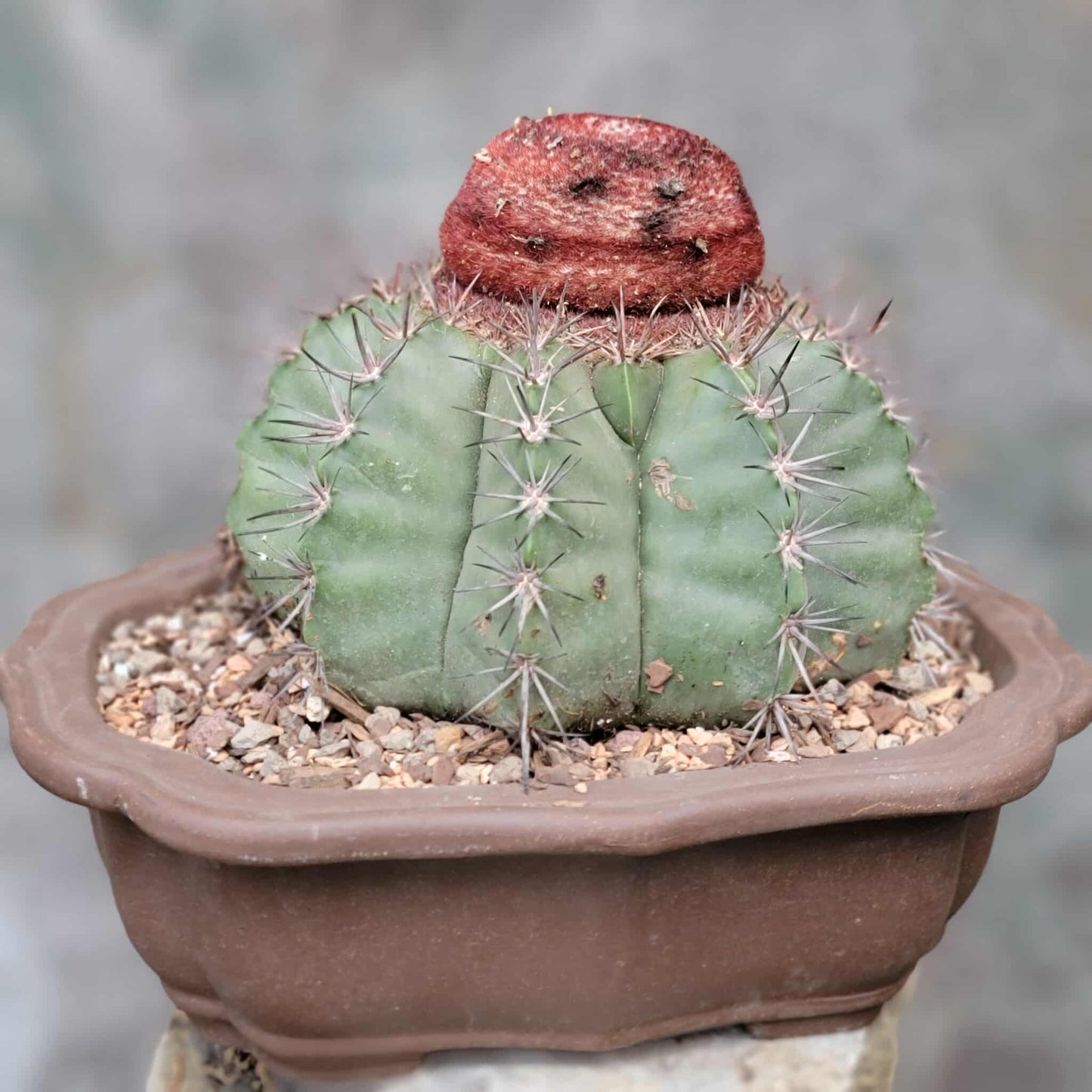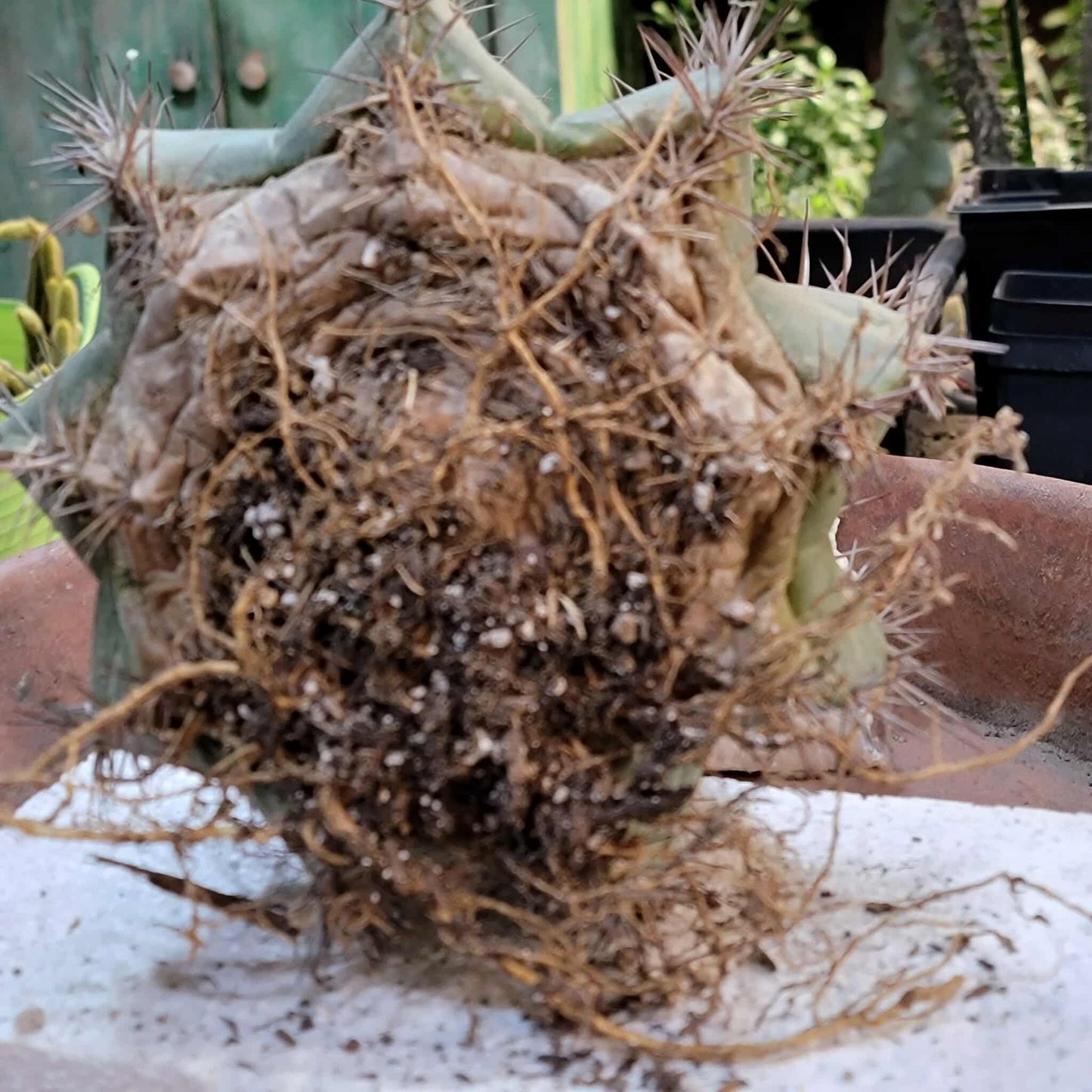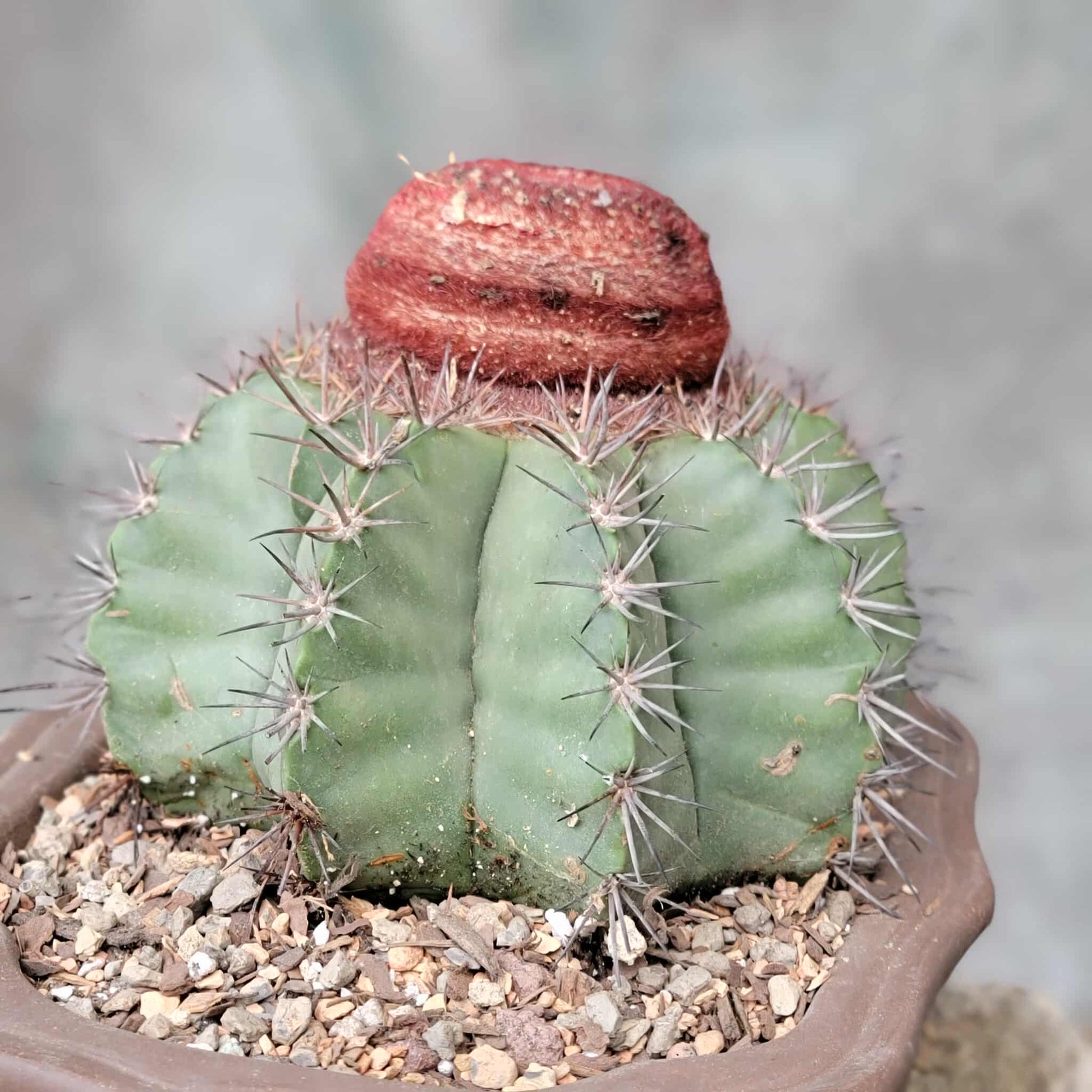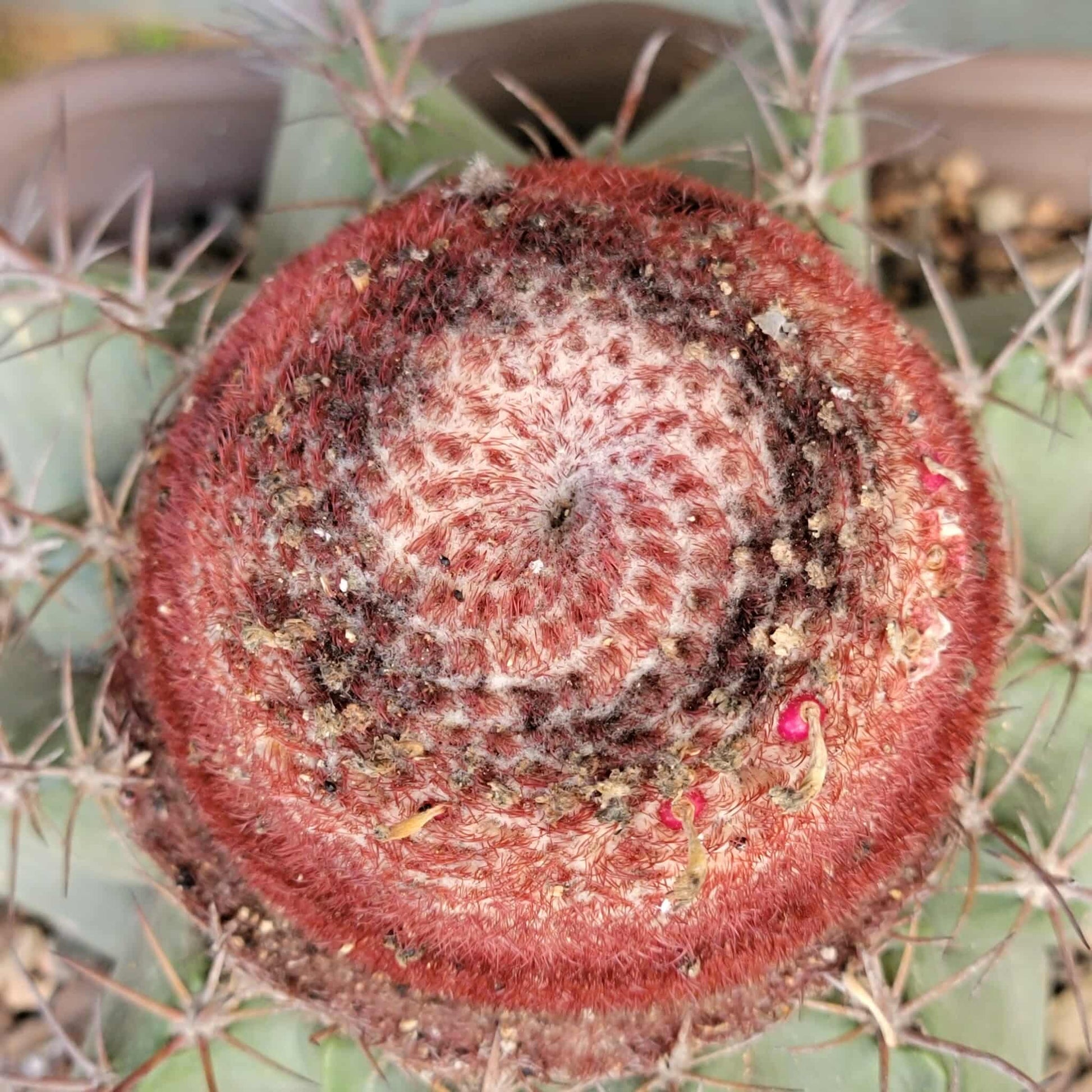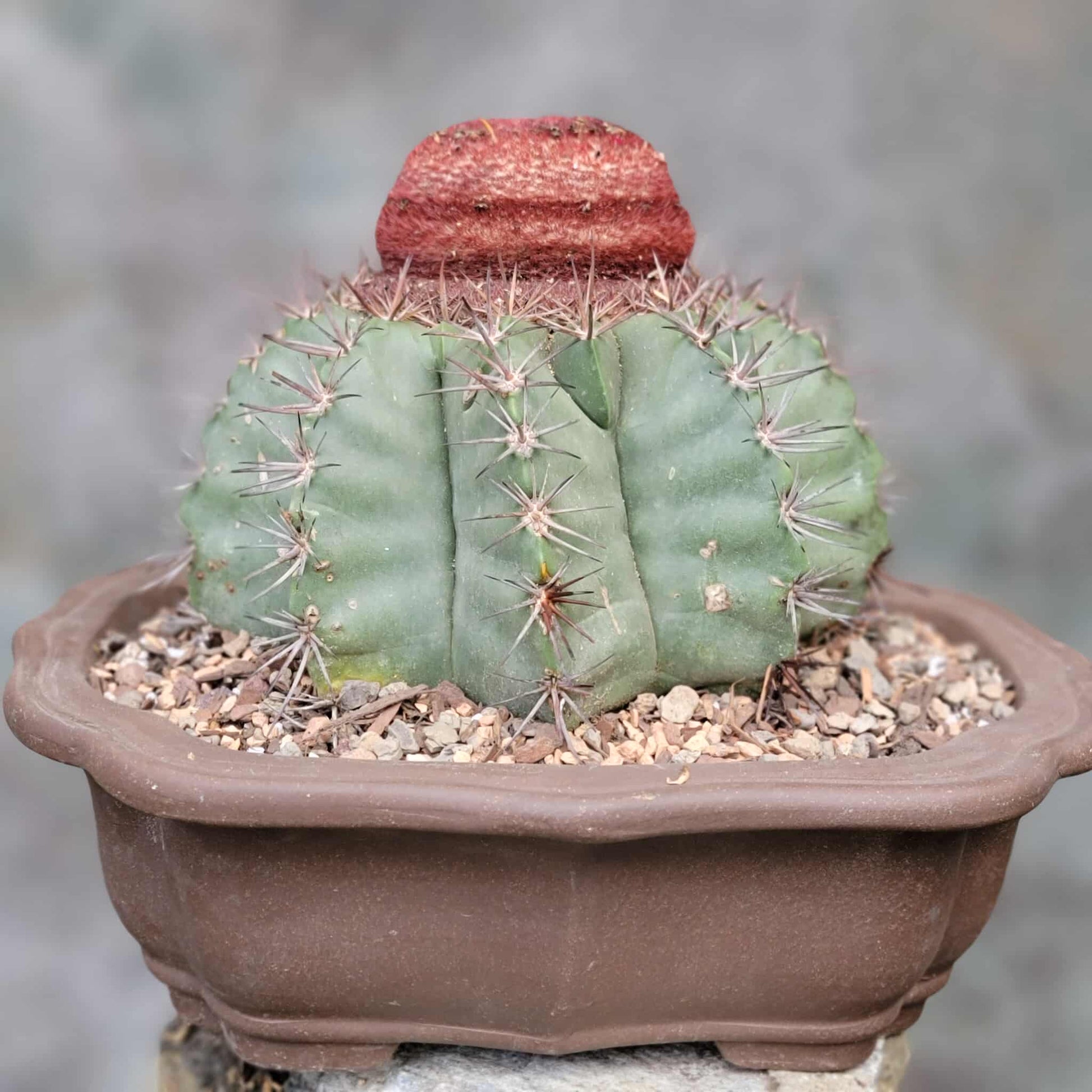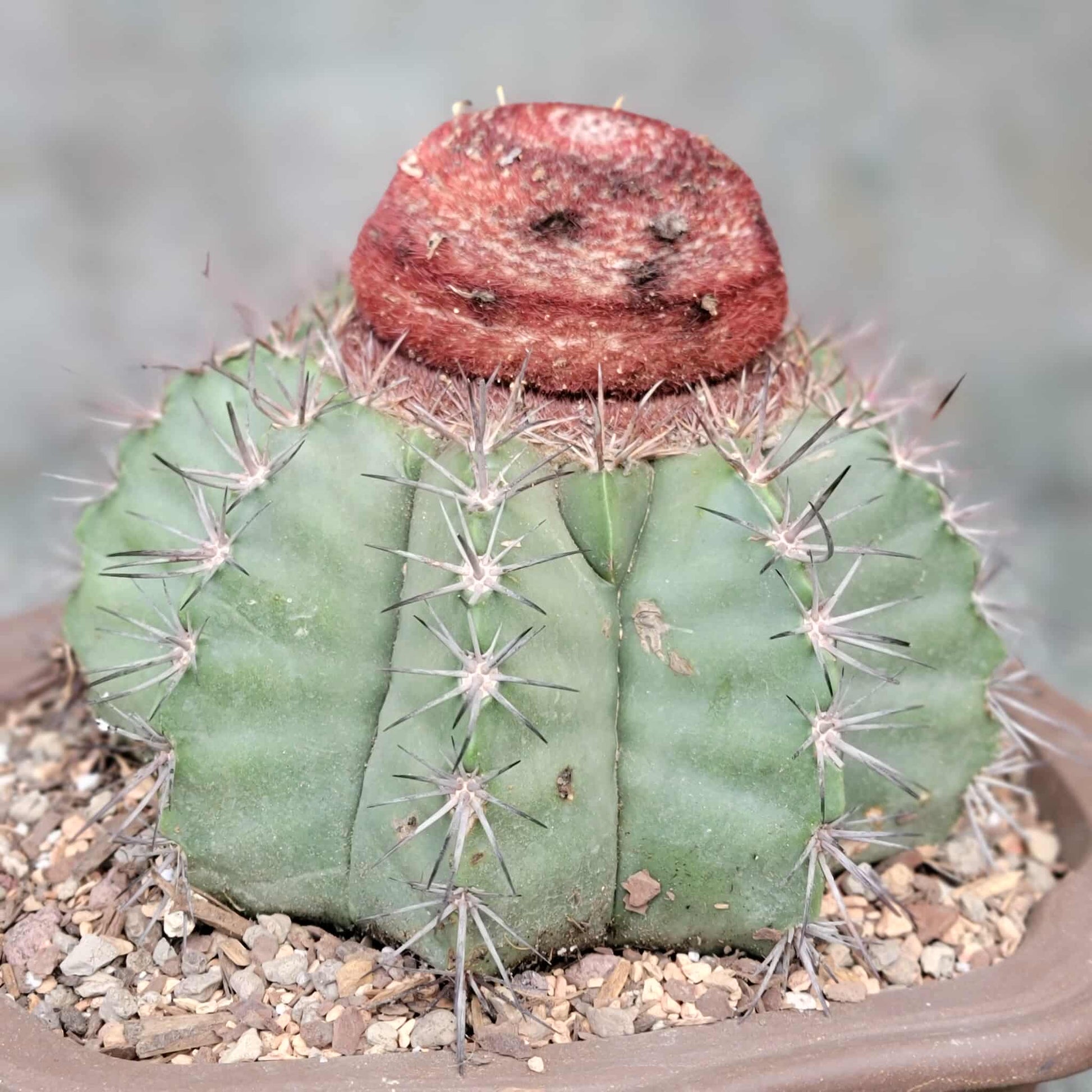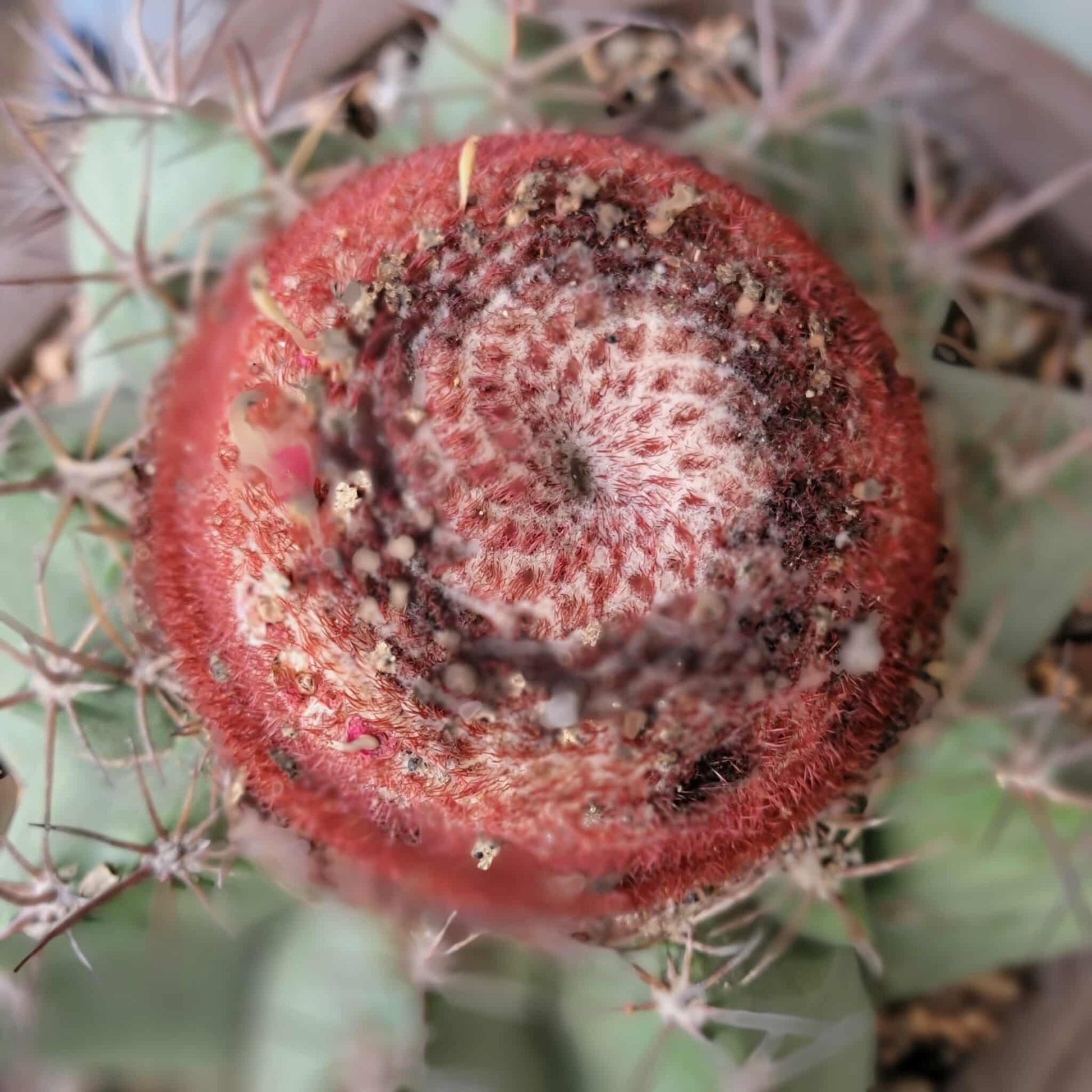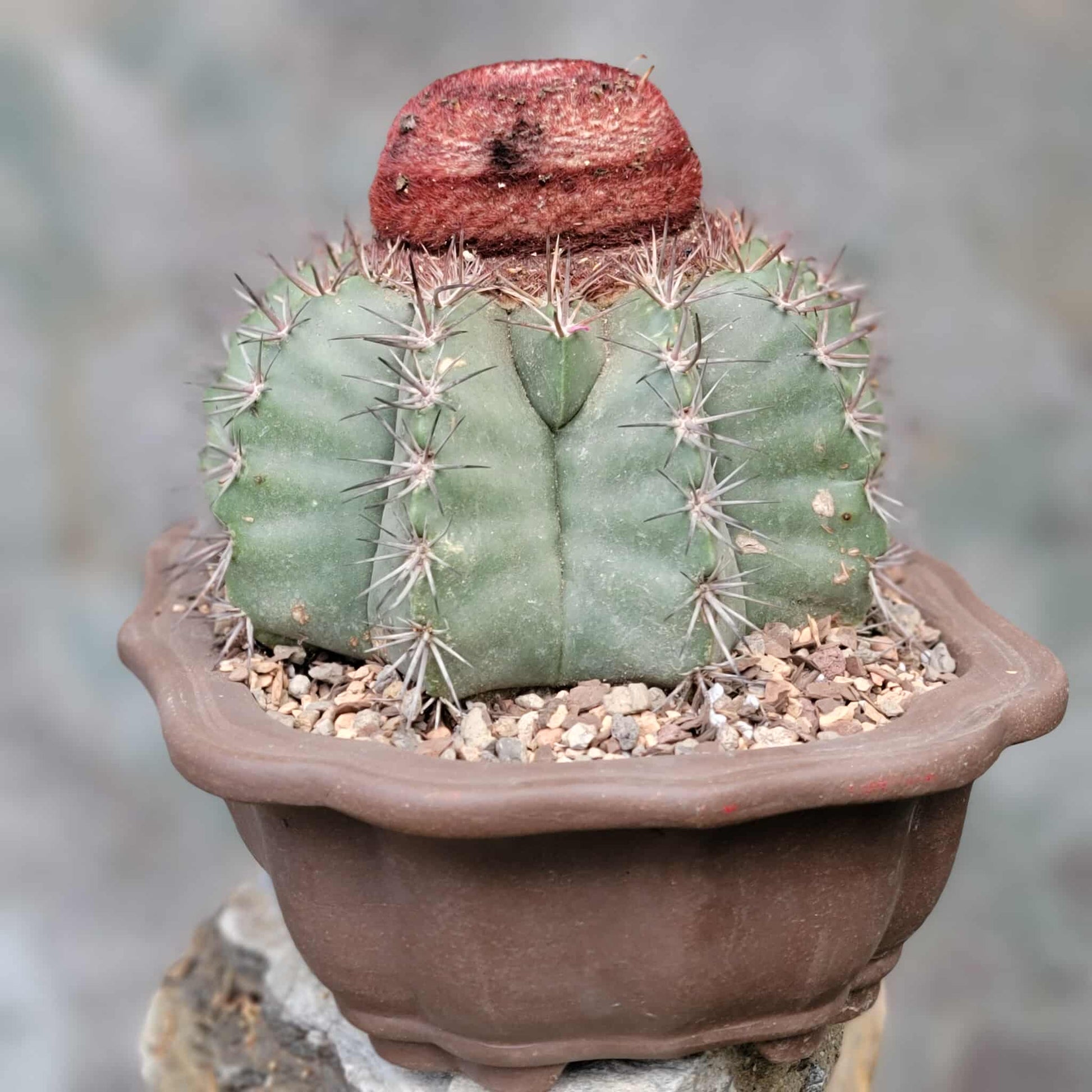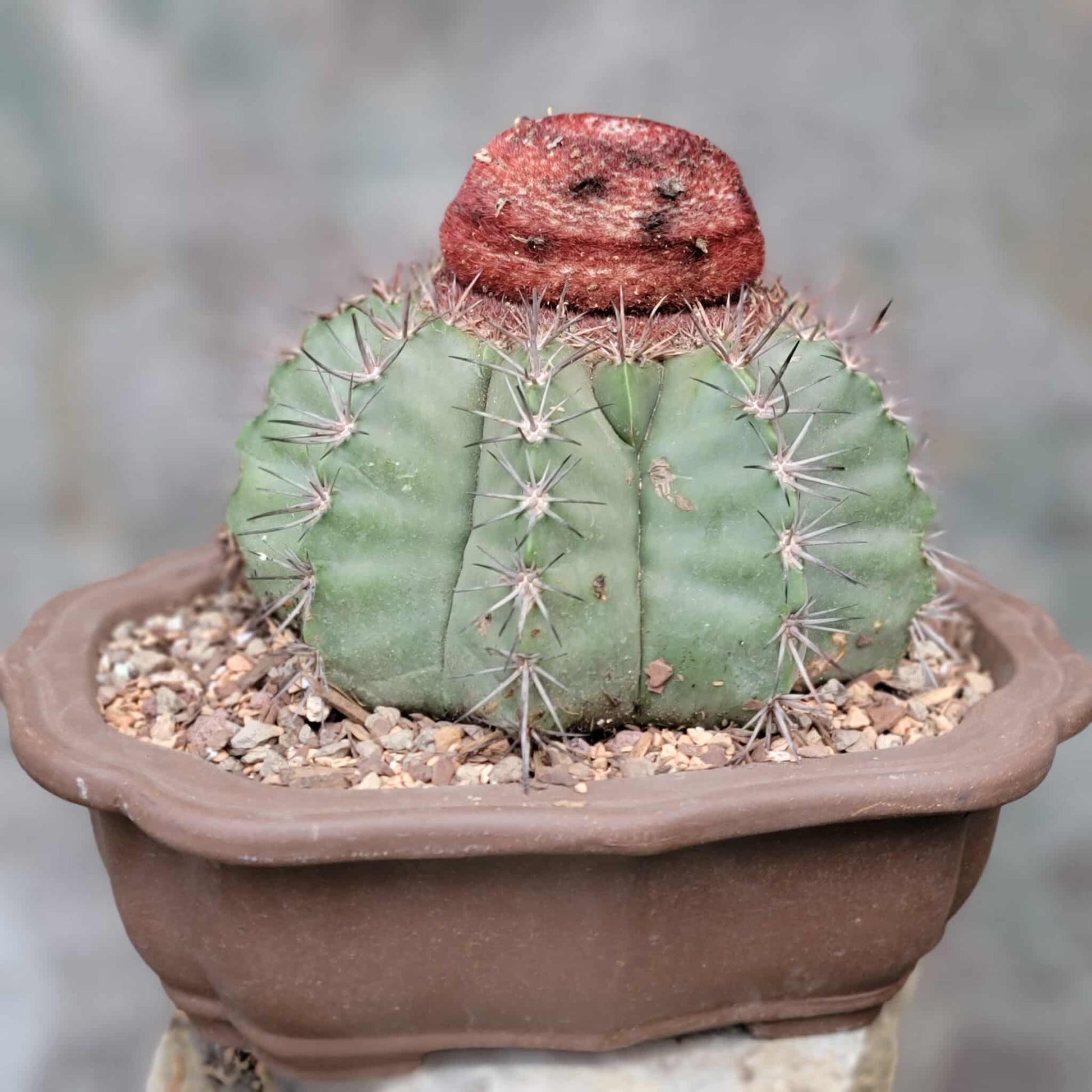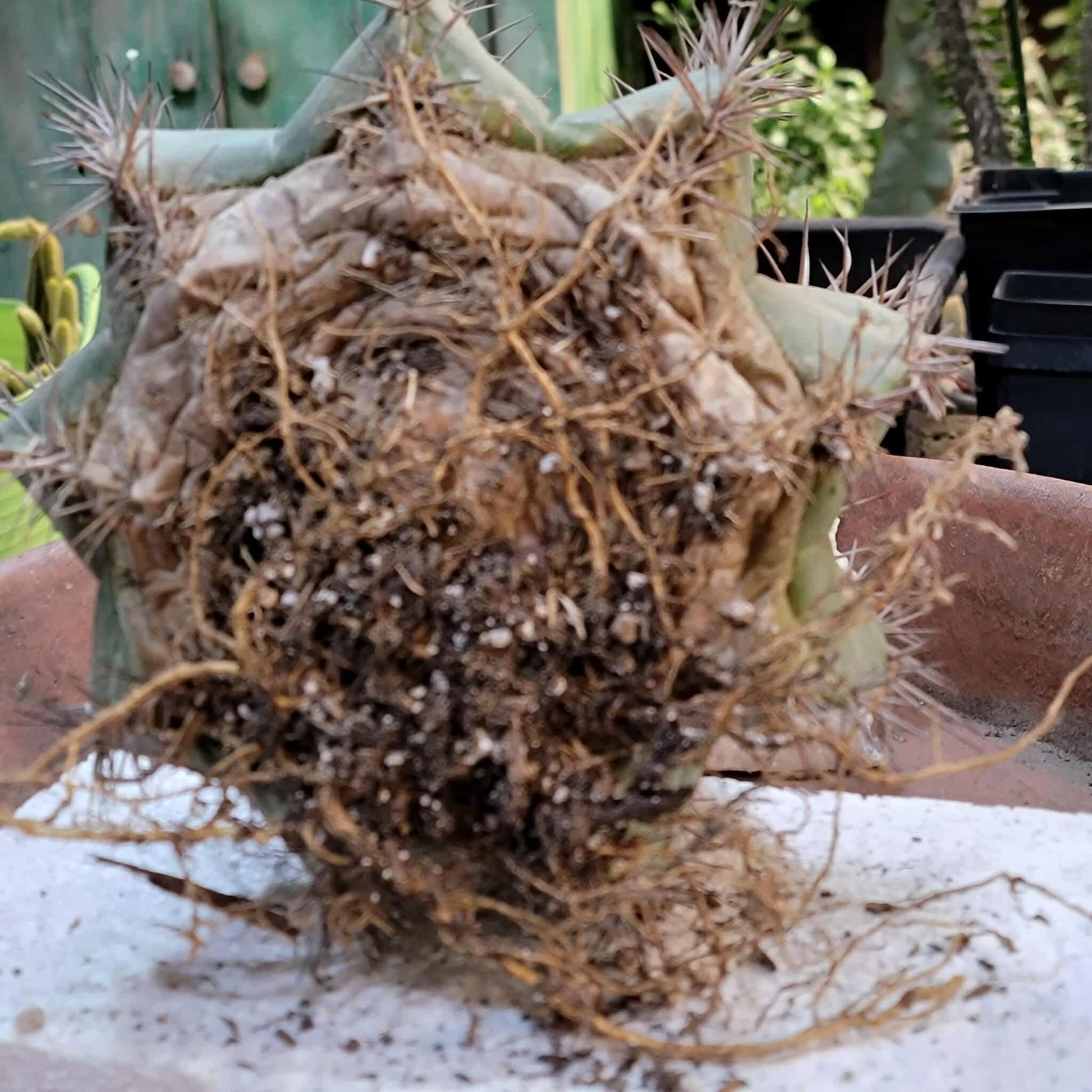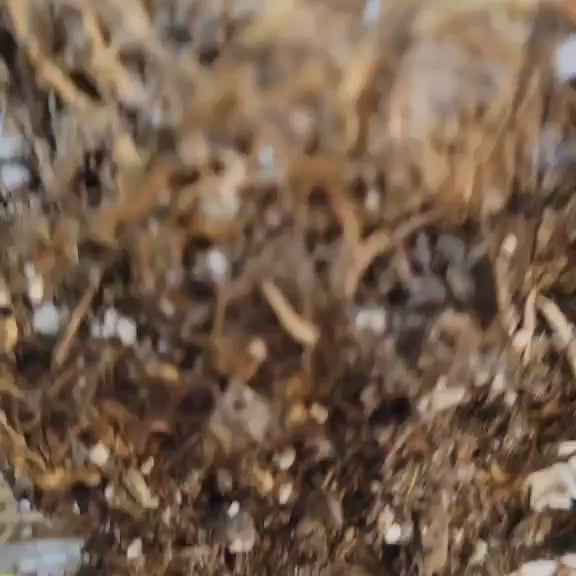Shangri-Ha Cactus Ranch
Melocactus bahiensis sap. amethystinus – Turk’s Cap Cactus
Melocactus bahiensis sap. amethystinus – Turk’s Cap Cactus
Couldn't load pickup availability
Melocactus bahiensis sap. amethystinus – Turk’s Cap Cactus
You will receive the exact specimen shown here.
Measures 9" wide x 7" tall.
After flowering, fruits shaped like peppers appear and attract birds.
In bloom in August!
Roots as shown.
Showcased here terra cotta planter (sold separately).
This is a large and heavy specimen so shipping is a little expensive.
Will be shipped bare root.
The name bahiensis sap. amethystinus refers to a subspecies of the cactus Melocactus bahiensis, formally known as Melocactus bahiensis subsp. amethystinus. This succulent is native to Brazil and known for its distinct amethyst-colored flowers that emerge from a woolly structure called a cephalium.
KEY FEATURES
· Distinctive features: The most notable characteristic of the subspecies is its cephalium, a cap-like, bristly flowering structure that develops on mature cacti. It produces vibrant, pink to purple flowers.
· Body: The main body of the cactus is a globular or short-cylindrical shape with a bluish-green color. It is covered in pronounced ribs, which can vary from rounded to more acute and triangular in shape.
· Spines: Stout, reddish-brown spines emerge from prominent, white, woolly areoles on the ribs.
CARE REQUIREMENTS
· Sunlight and soil: As with most cacti, Melocactus bahiensis subsp. amethystinus needs well-draining soil and ample direct sunlight to thrive.
· Watering: It should be watered sparingly, allowing the soil to dry out completely between waterings, especially during its dormant period in winter.
· Cold sensitivity: This subspecies cannot tolerate frost and requires warmer temperatures year-round to prevent damage.
HABITAT & DISTRIBUTION
· M. bahiensis subspecies: While the species Melocactus bahiensis is found in both Bahia and Pernambuco, the subspecies amethystinus is primarily associated with the Brazilian states of Bahia and Minas Gerais.
· Regional variation: Different populations of Melocactus in these regions display a variety of traits, with some individuals showing characteristics of other subspecies or a mix of traits. This has led to some re-evaluation of how the subspecies are distinguished.
